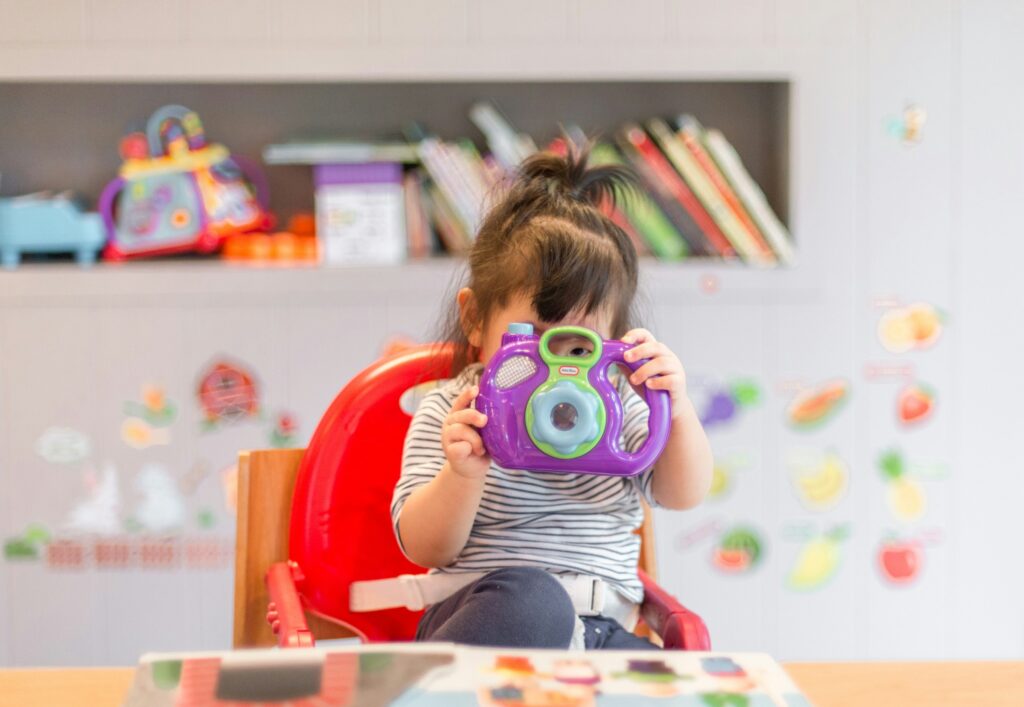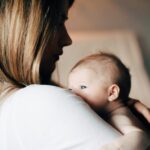Bringing home a newborn can feel overwhelming, especially with so many baby products on the market.
But here’s the truth—you don’t need it all.
What matters most are the essentials that keep your baby safe, clean, fed, and comfortable.
This list covers 10 practical newborn must-haves you’ll actually use every single day!
1. Diapers and Wipes
Diapers and wipes are the most-used items in those early months, so choosing the right kind matters.
Disposable diapers are convenient, easy to use, and widely available, making them a popular choice for busy or first-time parents.
However, they can be costly over time and aren’t the most eco-friendly option.
Cloth diapers, on the other hand, reduce waste and can save money in the long run, but they require frequent washing and a bit more upfront effort.
When it comes to wipes, sensitive skin options are best to avoid irritation, especially during those first weeks.
Fragrance-free and hypoallergenic wipes are gentle and safe for daily use.
For a sustainable alternative, reusable cloth wipes paired with water or a mild solution can also work well.
No matter which type you choose, stock up. You’ll go through far more diapers and wipes than expected—especially in the beginning.
2. Onesies and Sleepers
Onesies and sleepers are your baby’s everyday uniform, so comfort and practicality are key.
Look for soft, breathable cotton that’s gentle on newborn skin and keeps your baby from overheating.
Choose onesies with envelope necklines and sleepers with zippers to make diaper changes faster and less stressful—especially during the night.
Snaps may look cute but can be frustrating when you’re sleep-deprived and dealing with a wiggly baby.
Stick to simple designs that are easy to layer or remove.
Babies can go through multiple outfit changes a day due to spit-up or blowouts, so aim to have at least 5 to 7 clean options ready at all times.
3. Swaddles or Sleep Sacks
Swaddles and sleep sacks help newborns sleep better by gently wrapping their bodies and limiting the startle reflex that can wake them up.
Swaddling mimics the snug feeling of the womb, offering comfort and security during those early weeks.
While traditional blanket swaddles can work, they require careful wrapping and can come loose.
Velcro or zip-up swaddles are much easier to use, especially for sleep-deprived parents doing middle-of-the-night changes.
These ready-to-use options stay secure and save time, reducing frustration while keeping your baby safely bundled.
As your baby grows and starts to roll, you can transition to a sleep sack, which allows more movement but still keeps them cozy and warm without the risks of loose blankets.
4. Safe Crib or Bassinet
A safe crib or bassinet is one of the most important investments you’ll make for your baby.
Follow safe sleep guidelines by using a firm, flat surface with no extra pillows, blankets, or stuffed animals. These items may look cozy but increase the risk of suffocation or SIDS.
The mattress should be snug-fitting with a tight, breathable fitted sheet—nothing more.
Whether you choose a full-size crib or a smaller bassinet, make sure it meets current safety standards.
For parents who want to keep baby close at night, a portable bassinet is a great option for safe room sharing.
It allows easy access for nighttime feeds while still giving your baby their own sleep space.
5. Car Seat
A car seat is non-negotiable—you won’t be allowed to leave the hospital without one.
It must be rear-facing and specifically designed for newborns, offering proper support for a baby’s head, neck, and spine.
Look for a model with a five-point harness and good safety ratings.
Some infant car seats also click into compatible strollers, which can be helpful for quick transitions.
Correct installation is critical for safety, so take the time to read the manual or, better yet, have it checked by a certified technician.
Many hospitals, fire stations, and baby stores offer free car seat inspections to make sure everything is installed correctly and securely.
6. Baby Bathtub and Gentle Wash
A baby bathtub makes bath time safer and easier, especially in those early weeks when your newborn is small and slippery.
Choose a non-slip tub that fits comfortably in a sink or tub, with good back support to keep your baby secure.
Look for a design that allows water to drain easily and dries quickly between uses.
When it comes to baby wash, stick with a gentle, fragrance-free formula that’s made for sensitive skin.
Harsh soaps or scented products can cause irritation or dryness.
Keep in mind that newborns don’t need daily baths—two to three times a week is enough to keep them clean without drying out their skin.
7. Bottles and Formula/Breastfeeding Supplies
Whether you plan to formula-feed or breastfeed, having a few feeding essentials on hand is important.
For bottle-feeding, stock up on bottles with newborn-sized nipples and a reliable method to sterilize them—either a bottle sterilizer or a simple boiling routine works.
If you’re breastfeeding, key items include a supportive nursing pillow to help with positioning, nipple cream to soothe soreness, and disposable or reusable breast pads to manage leaks.
Even if you’re exclusively breastfeeding, it’s helpful to have a couple of bottles ready.
They allow others to help with feeding and give you a bit more flexibility, especially when you need rest or time away.
8. Pacifiers
Pacifiers can be a great tool for soothing a fussy newborn and helping them settle to sleep.
Many babies find comfort in sucking, and a pacifier offers a safe, non-feeding way to meet that need.
Look for newborn-sized options that are lightweight and shaped for small mouths.
Keep them clean by washing regularly with warm, soapy water or using a sterilizer, especially in the early months.
Always check for wear or damage before use. It’s important to know that not every baby will take to a pacifier, and that’s perfectly normal—some babies simply aren’t interested, and there’s no need to force it.
9. Baby Thermometer and Basic First Aid
A baby thermometer is a must-have for monitoring fevers or checking on your baby when they seem off, giving you peace of mind during unexpected moments.
Digital rectal thermometers are often recommended for newborns because they provide the most accurate readings.
Alongside the thermometer, it’s smart to have a few other first-aid basics within reach.
A nasal aspirator helps clear stuffy noses, especially since babies can’t blow their own.
Baby nail clippers or a nail file keep tiny nails from scratching their face, and gas relief drops can ease tummy discomfort during those fussy stretches.
Having these items ready means you’re prepared to handle small health concerns without stress.
10. Diaper Bag Stocked with the Basics
A well-stocked diaper bag makes outings with your newborn smoother and less stressful.
Choose a roomy, easy-to-clean bag with multiple compartments so everything stays organized and within reach.
At a minimum, pack a few diapers, a full pack of wipes, and a changing pad.
Always include an extra change of clothes in case of accidents, along with burp cloths for feeding messes.
Hand sanitizer is another must-have for quick cleanups when soap and water aren’t available.
You may also want to add a pacifier, a small blanket, and a plastic bag for dirty items.
Keeping your diaper bag packed and ready means you’re prepared to leave the house without last-minute scrambling.



